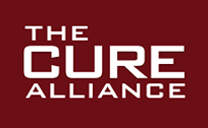Stunning Results of First Human Trials Presented Today in Boston at 5th Summit on Stem Cell Derived Islets
MIAMI, FL, UNITED STATES, October 29, 2024 /EINPresswire.com/ — The Cure Alliance, a 501(c)(3) nonprofit, is excited to announce that three patients with type 1 diabetes (T1D) were successfully transplanted with pancreatic islets utilizing a novel anti-CD40L antibody, Tegoprubart, (Eledon Pharmaceuticals, Irvine, CA), replacing Tacrolimus, the commonly used and harsh anti-rejection drug. The objective of anti-CD40L antibodies is to trick the immune system to recognize transplants as “self”, therefore avoiding their immune rejection.
The results from these historic transplants were presented in Boston on October 29, 2024 (https://stemcellislet.ipita.org) by Dr. Piotr Witkowski of the University of Chicago Transplantation Institute, in collaboration with the University of Miami Diabetes Research Institute (UM-DRI). The pilot study was funded by The Cure Alliance (TCA) and the Breakthrough TD1 ( formerly Juvenile Diabetes Research Foundation).
The two female patients with T1D, age 40 and 30, showed excellent control of glucose levels without the need for insulin injections, after decades being unable to control their blood sugar and living in constant danger of debilitating, potentially lethal episodes of low blood sugar (hypoglycemia). A third patient with T1D has already received this novel therapy at the University of Chicago with already remarkable results that were also presented at the Boston meeting.

“This new anti-CD40L antibody has a great potential to be a game changer providing less toxic and more patient-friendly immunotherapy to treat diabetes and support organ/islet transplantation.” Dr. Piotr Witkowski
“An unprecedented three to five fold increase in insulin production from transplanted islets was observed in both pre-clinical and in the initial clinical transplants.”— P Witkowski, J Fung at U of Chicago; N Kenyon, C Ricordi at U Miami DRI
Donor pancreatic islets (the mini-organs containing the insulin-producing cells) were infused into the liver by a minimally invasive procedure through a catheter placed by interventional radiologist under local anesthesia. The entire procedure takes less than 40 minutes. Tacrolimus anti-rejection drug was replaced with the novel antibody, Tegoprubart.
Importantly, no sign of toxicity towards the transplanted islets, the kidneys, or other organs was observed, unlike traditional immunosuppression with Tacrolimus, that in organ transplantation is well known to be associated with the risk of developing diabetes in subjects who were not affected at the time of transplantation.
A critical aspect of these initial results is that they confirmed previously reported pre- clinical results by the UM-DRI that enabled FDA authorization of this clinical trial: elimination of Tacrolimus and its associated toxicity to the transplanted insulin producing cells allowed for a dramatic increase in insulin production by the transplanted islets, contributing to a higher probability to achieve freedom from insulin injections in the recipients of this novel treatment.
T1D is caused by a patient’s own immune system selective attack of the insulin-producing cells that selectively destroys them, damaging the pancreas ability to produce insulin which controls blood sugar. Uncontrolled blood sugar can lead to organ failures, blindness, amputations and early death. In addition to the approximately 10 million patients with type 1 diabetes worldwide, over 500 million subjects are estimated to live with type 2 diabetes and between 150 to 200 millions of them also rely on insulin injections to try to maintain health.
Novel Treatment: 30 Years in the Making
The first successful islet transplants were performed in the early 1990s by Dr. Camillo Ricordi and collaborators at the University of Pittsburgh, using the Ricordi Chamber and a method developed to isolate and purify hundreds of thousands insulin-producing islets from donor pancreases, resulting in the first successful cases of islet transplantation for the treatment of diabetes. Recipients were treated with a powerful anti-rejection drug, Tacrolimus. However, harsh side effects were associated with this drug, including toxicity against the patient’s kidneys, nervous system as well as the transplanted islets, leading to a progressive long-term decline in insulin secretion, and to the eventual recurrence of diabetes, years after an initially successful treatment.
At the UM-DRI, Drs. Norma Kenyon, Camillo Ricordi and collaborators have worked for over two decades on the development of this novel strategy to prevent rejection of transplanted islets, to avoid Tacrolimus and its feared side effects. The efficacy of anti-CD40L antibodies was demonstrated in pre-clinical testing that validated the strong potential for clinical translation of this novel therapy. Dr. Kenyon presented these ground-breaking and clinical trial-enabling studies during the same Boston conference
(https://stemcellislet.ipita.org), after Dr. Witkowski presentation. The pre-clinical work and immune-monitoring studies for the clinical trial performed at the UM-DRI have been supported in part by the Diabetes Research Institute Foundation (DRIF).
Compared to Tacrolimus, this antibody allowed significant improvement of insulin secretion from transplanted islets, and now, after years of collaboration with Drs. Kenyon and Ricordi, the company Anelixis Pharmaceuticals (now Eledon Pharmaceutical, Irvine, California) has developed an improved, safer version of the antibody that was also tested at the UM-DRI to confirm safety and efficacy in pre-clinical research leading to this groundbreaking clinical trial. “Extensive data from our studies at the DRI, as well as the work of others, support the potential of anti-CD40L as a safer, more effective agent for islet transplantation, and Dr. Witkowski’s early clinical results are very exciting”, said Dr. Kenyon. “It has been a long journey to help people with type 1 diabetes become free from dependence on insulin. This strategy holds great promise,” said Dr. Ricordi.
“There is clinical evidence from our studies and others conducted by the NIH’s Clinical Islet Transplantation Consortium that demonstrate islet transplantation can reverse diabetes. However, the use of current standard of care anti-rejection medications, specifically: Calcineurin inhibitors like Tacrolimus have limited the benefit of these procedures due to well-known associated toxicity to the islets and the kidneys, in addition to neurotoxicity and an increased risk of hypertension. Our initial results indicate that Tegoprubart can effectively protect islets from rejection without the side effects related to current standard therapy” said Piotr Witkowski, M.D., Ph.D., Director, Pancreatic and Islet Transplant Program, University of Chicago Medicine who together with Dr. John Fung as a principal investigator conducts the trial.
Additional fundraising, necessary to expand this important proof-of-concept clinical trial, continues at www.thecurealliance.org/donate/ where 100% of secure tax-deductible donations go directly to this pilot study.
The Cure Alliance is a 501(c)(3) non-profit dedicated to helping scientists working to cure chronic, debilitating and fatal diseases. We offer our resources to help move their successes from the lab to the patient’s bedside (www.TheCureAlliance.org).
Contact: shelleyzross@thecurealliance.org
Shelley Ross
The Cure Alliance
shelleyzross@thecurealliance.org
Visit us on social media:
Facebook

